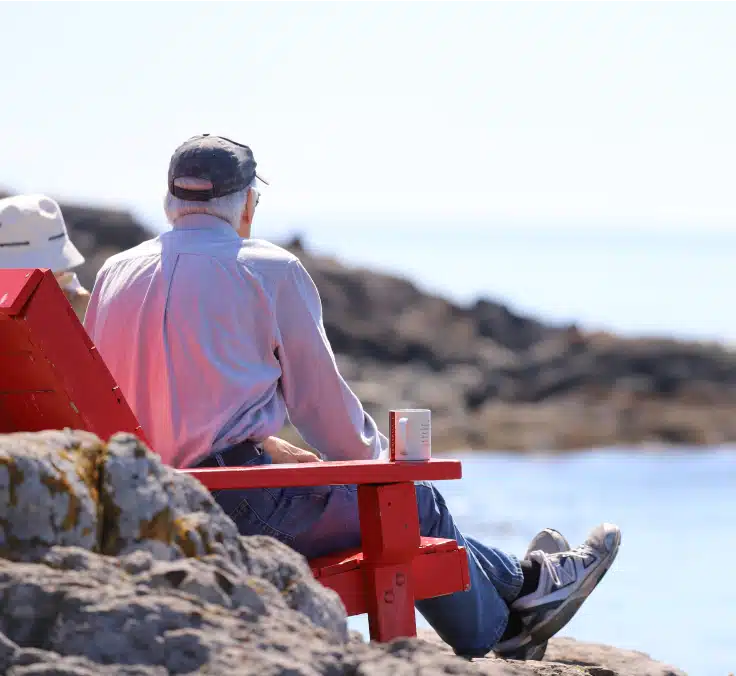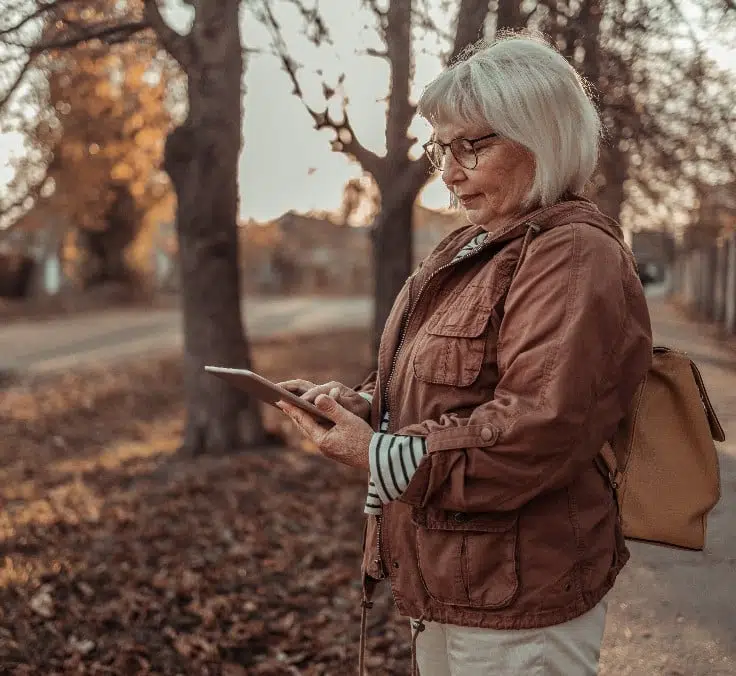INNOVATION| 15.11.2022
Longevity is more about habits than genetics
We meet Clara Fernandez, co-founder of Rosita Longevity, a finalist in Fundación MAPFRE’s Awards for Social Innovation. This app for seniors aims to promote longevity with coaches who prepare personalized plans with daily routines and actions.
How did the idea of Rosita Longevity come about?
The idea came to life as a spin-off of a major offline project that we’ve been managing for many years, which is the longevity school of the Cofrentes spa. Based in Spain, it’s a mix between a clinic, a hospital, a university and a hotel in the middle of the mountain, which over the course of the last 10 years, we have converted from a traditional spa into a school of longevity. In essence, it’s a camp where people can learn how to grow old and is visited by 15,000 seniors every year. Over time, we’ve defined a methodology for designing a healthy aging strategy and communicating it to people so that they understand it and can gradually assimilate it.
With all that knowledge and expertise, both scientific and sociological, we decided that we wanted to reach many more people than the 15,000 seniors who have come to Cofrentes: we wanted it to reach all seniors in Spain, Europe and even the United States. In 2020, before the pandemic, we began thinking about how we could leverage technology to scale the entire concept, and that’s how the Rosita Longevity concept came into being. It centers on a mobile application for people between the ages of 60 and 75 that acts as a longevity coach, a coach that will help you design your plan, set goals, actions and work with you to achieve them.
How would you define “longevity” at Rosita Longevity?
Currently, the Royal Spanish Academy defines longevity as the quality of being long-lived, as if it were an innate quality.
But in fact, only 20% of longevity is estimated to be genetic. The other 80% is epigenetic and relates to everything you do in your daily life, so it’s not so much a quality, but a capacity. People must be trained on how to be long-lived.
At Rosita Longevity we are committed to empowering people to understand what factors change longevity and what things they have to start doing or stop doing after 60.
This is really like a pyramid, where the base is medicine and lifestyle. If you don’t take the first step, which is exercise, there’s no point in continuing with the plan. In fact, when you sign up, from the start we work really hard on exercise and nutrition. That’s not the only thing you have to do, but if you don’t have that, it’s very hard to handle the rest.
So, for us, longevity is a capacity that you develop. Living longer, healthy lives is based on knowledge and work.
What is the strength of this project compared to other senior economy projects?
Firstly, we focus on a group that most of the senior economy tends to ignore, which is younger seniors.
Most projects focus on people aged 75 to 80 and have to do with dependency. This market is starting to become a bit saturated, and there are many more players. Meanwhile, in the 60 to70 year-old sector there are still very few players.
Also, we’re a startup that has emerged from a real evaluation of 10 years observing 15,000 seniors pass through the spa annually with their own problems and needs.
Why did you decide to submit the project to Fundación MAPFRE’s Awards for Social Innovation?
MAPFRE is a benchmark in health and innovation throughout the world, and we felt it was very important to participate in order to learn more about the ecosystem of similar initiatives.
We wanted to give voice and visibility to the project and join the community of innovation and social awards within Fundación MAPFRE.
What have you gained by participating in these awards?
It has given us visibility, but most of all we’ve learned about other projects focused on innovation for seniors. We now feel less lonely on our journey, we can see that there are other people on the same path, addressing problems that are important for senior society, even though we know that there are few of us who are trying to carry out projects for seniors and, most importantly, outside of public policy, which ought to play a significant role in this regard.
How has the project progressed after being selected as a finalist?
In 2020, Rosita Longevity was just an idea. We raised our first round of funding that same year and then started building the application, which first became available in a super simple version. Then we started to develop the product a little bit more; we were very focused on the app, developing plans, programs and so on. And in 2021 and 2022, we have continued to develop programs, and we started the marketing strategy just a couple of weeks ago.
We have a group of users who found out about us during the pandemic, and they’ve acted as our largest support base. And now we’re launching a very disruptive marketing strategy: you can find us in the most famous spots in some cities, and also on Tik Tok and Instagram.
What are your plans for the future?
We’re really focusing our growth in the United States. We’re working between Valencia and Miami, starting to collaborate with American insurance companies. The plan is for the product to evolve and adapt to the U.S. market and its social security system, which covers what we do.
In the short term, we’re preparing a very powerful Christmas campaign for people to give their parents a present of a longevity plan, which is what they really need, not another pair of pajamas or a slippers.
For over 40 years, Fundación MAPFRE has been working to achieve a better, fairer and more egalitarian world for all, which is why we reward initiatives that have a positive impact on society with the Fundación MAPFRE Social Innovation Awards, and the Rosita Longevity project, which improves the longevity of our seniors, is a case in point.
RELATED ARTICLES:




